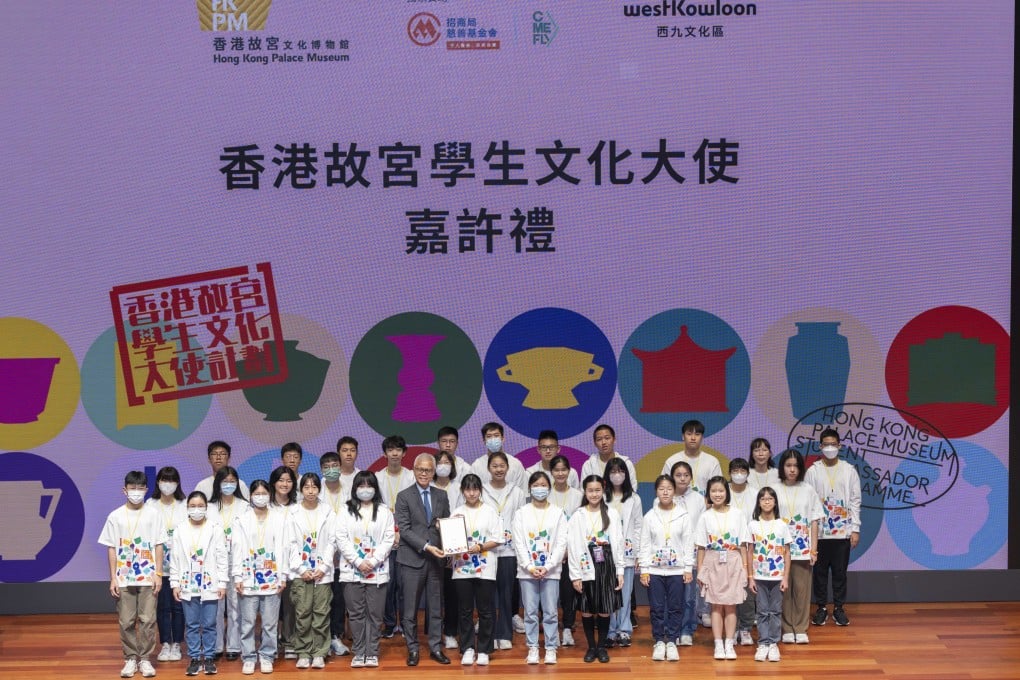Training young agents of history and culture: How Hong Kong Palace Museum is nurturing a new generation of talent with its Student Ambassador Programme
- Once labelled a “cultural desert”, Hong Kong has proved otherwise, with its historical monuments, films with a global reach and, of course, Cantopop
- West Kowloon’s development and the opening of M+ and the Hong Kong Palace Museum have further bolstered the city’s push to foster the arts and culture

It’s a long-standing jibe that Hong Kong is a cultural desert. One South China Morning Post column from 1951 notes that “old residents are familiar with the criticism levelled at Hong Kong – that the Colony is a cultural desert”, indicating that even then the phrase was a tired one. Of course, the remark has long rung false. Hongkongers can point to the centuries-old Lei Cheng Uk Han tomb or the 13th century Sung Wong Toi memorial as indicators of the territory’s ancient history. In more recent years Cantopop has dominated the airwaves of East Asia and Hong Kong cinema influenced the world.
All this has been achieved despite a lack of support for arts education in Hong Kong. In her academic paper “Culture and the City: Hong Kong, 1997-2007”, Carolyn Cartier wrote that during the colonial era, “Arts were not included in local school curricula and, as anyone who grew up in Hong Kong can tell you, the school system encouraged pursuit of relatively practical subjects and economically remunerative professions.”
The long-awaited development of West Kowloon and the opening of M+ and the Hong Kong Palace Museum (HKPM) means the city has achieved some spectacular successes in its fostering of arts and culture in recent years. Looking to build on these achievements is the HKPM’s Student Ambassador Programme, which recently celebrated its first-ever graduates.
Sponsored by the China Merchants Foundation and focused on local tertiary and secondary school pupils, the programme aims to “nurture Hong Kong’s next generation of arts and culture talents” and cultivate their understanding and appreciation for Chinese history and cultural relics.

“Hong Kong has very much been a business city, but in the past 10 years that has changed a lot,” says Dr Louis Ng, director of the HKPM and a staunch advocate of the ambassador programme. “When I was young, we did not have these kinds of opportunities in Hong Kong. That is why I think this is quite important.”